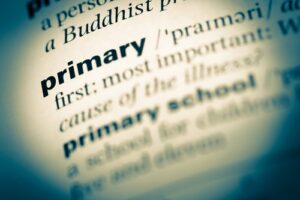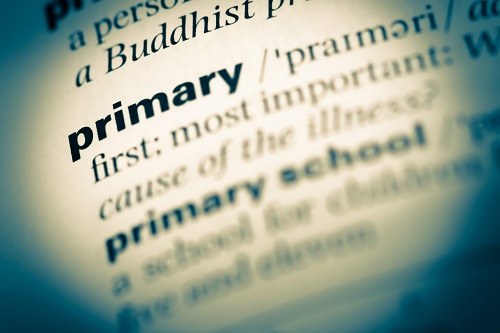The use of dictionaries in the primary classroom should not be underestimated for even the youngest learners. Thoughtfully compiled and carefully designed dictionaries offer age-appropriate content in an attractive and educational package.
What is to be gained by children using a dictionary from an early age?
 There is little doubt that familiarity with dictionaries from an early age will help children throughout their learning. Apart from finding out about the fundamentals of language – alphabetical order, spelling, grammar, and so on – working with dictionaries will help to expand their vocabulary and knowledge about language, and encourage them to be more independent in their learning as they grow older.
There is little doubt that familiarity with dictionaries from an early age will help children throughout their learning. Apart from finding out about the fundamentals of language – alphabetical order, spelling, grammar, and so on – working with dictionaries will help to expand their vocabulary and knowledge about language, and encourage them to be more independent in their learning as they grow older.
It is important to understand how children’s dictionaries differ from adult dictionaries; one is not merely a subset of the other. The vocabulary included in dictionaries for younger learners has been specially selected as being words which children commonly use or come across in their everyday lives. These might not always be the most frequent words statistically, but for children, ‘play’ vocabulary like pirate, castle, and seesaw are essential, as are words which relate to their daily routines, for example, snack, sum, and playground. In addition, examples of the word in use – an important part of both adult and young learners’ dictionaries – are tailored to the understanding of the reader: children might go to the park at the weekend, adults might do DIY or go shopping.
It should also be borne in mind that dictionaries for primary children offer so much more than information on the meaning of words. Depending on the age of the learner, the dictionary may offer information about grammar – parts of speech, plurals, verb forms, and comparative and superlative adjectives. The majority of dictionaries for younger learners ensure that this information is available but not obtrusive, so that children can find and make use of it depending on their developing skills. There are also tips on how to avoid certain spelling pitfalls and hints on the pronunciation of unusual words. Many primary dictionaries include additional information about certain words, designed to stimulate children’s interest in language generally, not just English; wouldn’t many young children be interested that the literal translation of panda in Chinese is “bear cat”?
Finally, and by no means least importantly, dictionaries for primary children are designed to be fun and engaging. Colourfully illustrated and with a wealth of supplementary materials, they aim to help children develop a love of language and a love of learning. And what’s not to love about that?



